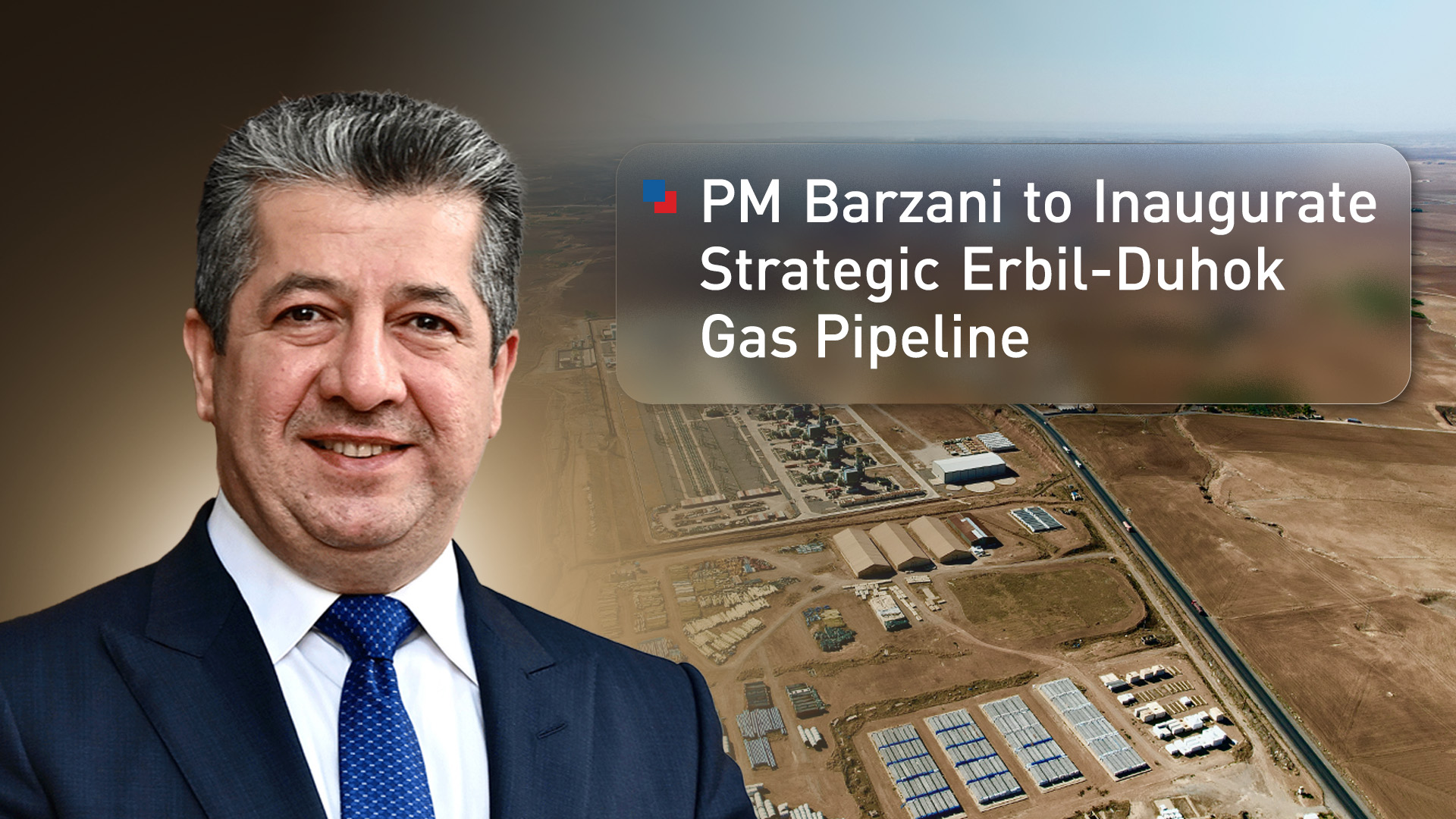PM Barzani to Inaugurate Strategic Erbil-Duhok Gas Pipeline to Power New 1000MW Station
PM Masrour Barzani will inaugurate the strategic Erbil-Duhok gas pipeline, a $591M project to provide clean energy to a new 1000MW power station in Duhok.

ERBIL (Kurdistan24) – In a landmark step for the Kurdistan Region's energy independence and commitment to cleaner, more sustainable power generation, Prime Minister Masrour Barzani on Tuesday will officially inaugurate the strategic project extending the natural gas pipeline from Erbil to Duhok.
The inauguration, held in the city of Duhok, marks a pivotal moment in the government's ambitious infrastructure development plan, directly connecting the region's natural gas resources to a major new power station and signaling a new era of energy security and economic potential for the governorate.
The project, a significant feat of engineering and a testament to the growing capabilities of the region's private sector, is a cornerstone of the Ninth Cabinet's vision to modernize essential services and ensure that the benefits of the Kurdistan Region's resource wealth are translated into tangible improvements in the daily lives of its citizens.
The pipeline's completion represents a critical move away from less efficient fuel sources, paving the way for a more environmentally responsible and economically sound energy future for one of the Kurdistan Region's most vital provinces.
A Strategic Artery for Clean Energy
The primary and immediate objective of this monumental project is to secure a reliable and efficient fuel source for the newly developed one-thousand-megawatt Kwashe gas power station, located in the Semel district of Duhok province.
The delivery of natural gas to this major generating facility is a game-changer for the region's electricity sector, representing a significant and important step toward providing an alternative and clean energy source for homes, businesses, and industries across the area.
By transitioning to natural gas, a cleaner-burning fossil fuel, the new power station will not only provide a massive boost to the electricity grid but will do so with a reduced environmental footprint compared to older, more polluting power generation methods.
The pipeline itself is a formidable piece of infrastructure. Spanning a distance of 198 kilometers, it creates a direct and secure energy corridor between the capital, Erbil, and the governorate of Duhok.
The implementation of this extensive project was undertaken by the KAR Company, a key player in the Kurdistan Region's energy sector.
The project was completed at a cost of 591 million dollars, a substantial investment that underscores the Kurdistan Regional Government's unwavering commitment to building a robust and resilient energy infrastructure capable of meeting the growing demands of its population and economy.
A Public-Private Partnership Powering Progress
The pipeline is one half of a synergistic energy equation. Its purpose is to feed the Kwashe gas power station, an equally important and ambitious project in the energy production sector of the Kurdistan Region.
With a massive production capacity of 1000 megawatts of electricity, the Kwashe station is set to become a powerhouse of the national grid, dramatically increasing the supply and stability of electricity for the entire Duhok governorate and beyond.
The development of the power station is being implemented by the "Mass Group Holding" company, another prominent private sector entity in the region.
The project is being carried out under a contract with the Kurdistan Regional Government that utilizes the (Build, Own, Operate) system.
This modern investment framework is a key element of the government's economic strategy, encouraging private sector investment and expertise to develop critical public infrastructure. Under the BOO model, a private company like Mass Group Holding finances, builds, owns, and operates the facility, providing a vital service to the public while the government benefits from the new infrastructure without bearing the full upfront financial burden.
This public-private partnership model has been instrumental in accelerating the development of the Kurdistan Region's energy sector, fostering innovation, and ensuring that large-scale projects are executed with efficiency and technical expertise.
The inauguration of the pipeline by Prime Minister Masrour Barzani is therefore not just the opening of a single project, but a celebration of a successful and forward-looking development model.
It highlights the government's role as a facilitator and strategic partner to a capable and dynamic local private sector, working in concert to achieve national goals.
The collaboration between the KRG, KAR Company, and Mass Group Holding on this integrated gas-to-power project serves as a powerful example of this strategy in action, delivering a project of immense strategic value that will serve the people of the Kurdistan Region for decades to come.
As the clean-burning natural gas begins its journey through the new 198-kilometer pipeline, it carries with it the promise of a brighter, more stable, and more prosperous future for the people of Duhok and the entire Kurdistan Region.